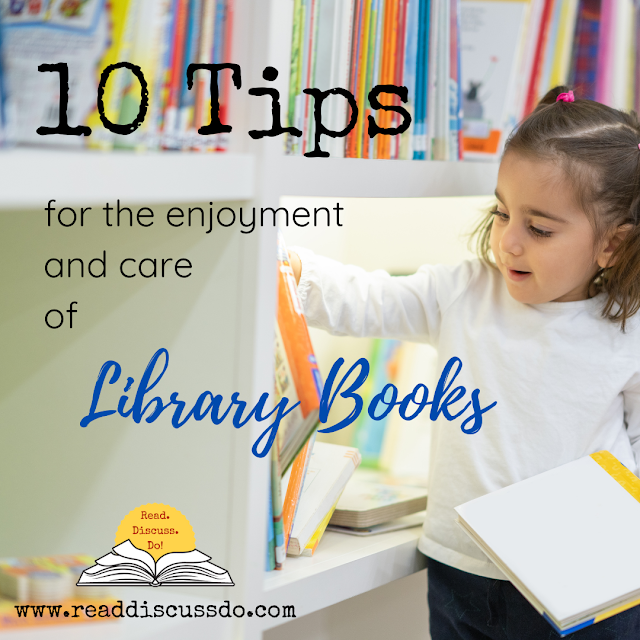by Rebecca J. Gomez
It's the middle of August, and school has started in lots of places, and if it hasn't for you, then it surely will soon. And that means kids will be bringing home books from the school library! During my years working in an elementary school library, I saw a lot of damaged books. And most of that damage was avoidable. With that in mind, here are ten tips for helping your children be responsible book borrowers.
1. Remind children that library books are meant to be enjoyed by everyone, so it's important to take care of them so they will last a long time and lots of other kids will be able to read them.
2. Talk about the proper way to handle a book to minimize wear and tear. Show children how to turn pages carefully, use bookmarks rather than "dog ears," avoid bending the spines too far, etc.
3. Give your children the freedom to choose their own books. If they want to read a book they will be more likely to take care of it.
4. Keep food and liquids away from books. Water bottles inside back backs, reading at the table during meal or snack time, and reading in the tub or pool are no-nos.
5. Handle books with clean hands. Jelly might be pretty easy to wipe off of a cover, but the pages are another story!
6. Have a designated place to keep library books when they aren't being read. Preferably not the floor where they might be trampled on or chewed up by a pet!
7. Remind your children not to loan their library books to anyone outside of your household.
8. Accidents happen, even if you're careful. When they do, leave book repair to the professionals. A tear in a page can be mended with magic tape, but anything else should be reported to the librarian so he or she can decide whether the book can be fixed or if it needs to be replaced.
9. Use the right kinds of bookmarks. Flat paper, card stock, or thin ribbons work the best. Thick items can cause damage to a book's spine. Paper clip bookmarks can tear pages.
10. Reading outside is a great idea, but leaving books outside is not.
I hope your children discover a lot of great books in the school library this year. Many of them will probably be books that other kids have discovered before. Isn't that a magical thought?


Comments